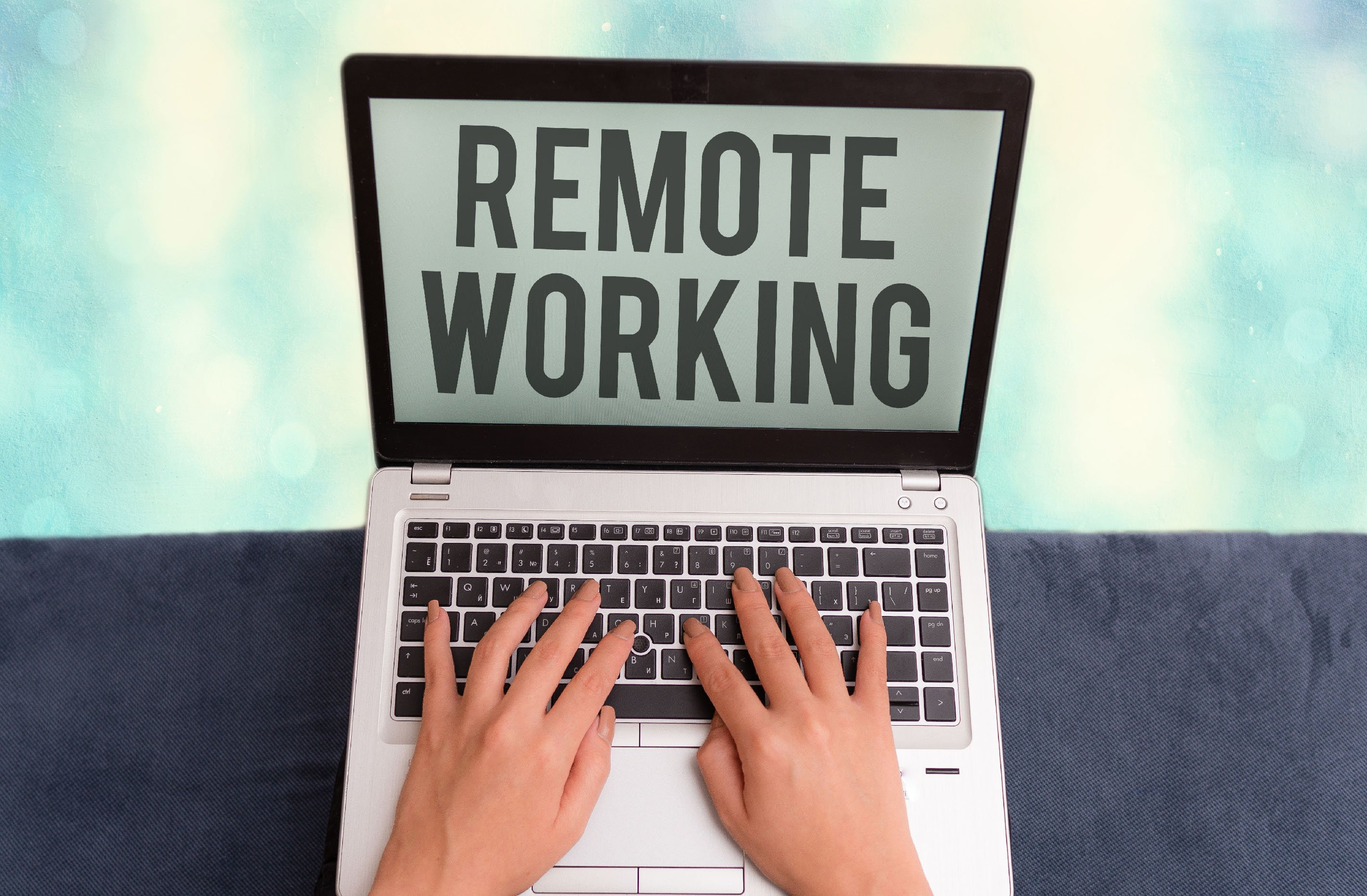Working remotely from home has become increasingly popular in recent years. The idea of a remote work style, or Remote Year, as they call it, is to work away from the office while traveling the world. With its many benefits, more people are turning to this flexible way of working than ever before.

I have worked remotely for almost six years, perhaps many years. For anyone working remotely for the past few years, switching to remote jobs is no longer inevitable.
We had a good amount of preparation time, learned from its difficulties and also didn’t consider the remote working experience bad at all. Remote job is no longer a viable option.
Remote work culture from home virtual job alone has become increasingly popular over the past few years, with many employers offering remote job opportunities to their remote employees.
In this comprehensive guide, we explore how you can become a professional remote worker, highlighting the best practices and strategies for success.
We discuss which headhunters can help you finding remote jobs, as well as provide guidance on how to manage your time and stay productive when time working from home office.
We’ll also address issues such as staying focused and maintaining relationships within a virtual workplace.
Working from home has become increasingly popular in recent years. The idea of a remote work style, or Remote Year, as they call it, is to work away from the office while traveling the world.
With its many benefits, more people are turning to this flexible way of working than ever before.
Benefits of working remotely such as lower costs and less stress due to reduced hours in the office.
Additionally, it allows those who practice remote workplace to take advantage of different time zones and opportunities that wouldn’t be available otherwise.
New remote work also allows people to better manage their personal lives while still remaining productive professionals.
Whether you’re an individual looking for a job or an employer looking for talented staff members, remote working can provide unique advantages you won’t find elsewhere.
Ask Yourself if Getting a Remote Job is Actually Right for You
If you’re considering getting a remote job, it’s important to think about whether it’s actually the right fit for you.

Here are some questions you can ask yourself to help determine whether working remotely really is a good option for you:
Are you self-motivated and able to work independently?
Working remotely requires a high level of self-motivation and the ability to work independently. If you struggle with staying focused and on task, a remote job may not be the best fit for you.
Do you have a dedicated workspace at home?
It’s important to have a dedicated workspace at home when you want to work remotely from home, in order to stay focused and avoid distractions. Do you have a quiet, private space where you can work without interruptions?
Are you able to communicate effectively with remote team members and colleagues?
Communication is key in any job, but it can be especially challenging when you are working remotely.
Do you have the necessary tools and skills to stay in touch with team members and colleagues and collaborate effectively?
Do you have a reliable internet connection?
A reliable internet connection is essential for working remotely. Do you have a strong, stable connection at home or at your preferred location?
Are you comfortable working outside of a traditional office environment?
Working remotely can be a big change from working in an office, and it’s important to be comfortable with this change. Do you thrive in a more flexible and independent environment?
Answering these questions can help you determine whether working remotely is the right fit for you and your career goals.
Learning How to Work Remotely Is All About Patience
Working remotely can be a great way to increase flexibility and productivity, but it can also present its own set of challenges.
One key factor in making remote employee success is patience. Patience is important for a number of reasons when it comes to remote jobs.

First, it can take time to adjust to the new way of working. If you’re used to working in an office, it can take some time to get used to the isolation and lack of face-to-face interaction that comes with a perfect remote job.
It can also be more difficult to stay focused and motivated when you’re not surrounded by coworkers. Being patient with yourself and giving yourself time to adjust can make the transition to a remote role job much smoother.
Patience is also important when it comes to communication. When you’re working remotely, you can’t just pop over to someone’s desk to ask a question or clarify a point.
Instead, you have to rely on email, chat, and video conferencing to communicate with your team. This can lead to misunderstandings and delays, especially if people are in different time zones or have different schedules.
Being patient and understanding that it may take a little longer to get an answer or resolution can help avoid frustration and keep things running smoothly.
Another area where patience is important in work remotely is in setting and achieving goals. When you’re working remotely, it’s easy to get caught up in the day-to-day tasks and lose sight of the bigger picture.
Setting clear goals and staying focused on them can help keep you on track, but it’s important to be patient and understand that progress may not always be linear.
It’s okay to take a step back and reassess your goals and priorities if necessary, as long as you stay focused and keep moving forward.
Finally, patience is important when it comes to balancing work and life. Working remotely can blur the lines between your professional and personal life, and it can be easy to get caught up in work and neglect your other responsibilities and interests.
Being patient with yourself and setting boundaries can help you maintain a healthy balance and avoid burnout.
Overall, patience is an essential quality for anyone working remotely. It can take time to adjust to the new way of working, and it’s important to be patient and understanding when it comes to communication, goal setting, and balancing work and life. With patience and a little bit of effort, the remote job can be a rewarding and productive experience.
How to Work Remotely from Home Effectively?
Working remotely from home in a remote position can be a great way to increase productivity and flexibility, but it’s important to set up a proper workspace and establish a routine to stay focused and organized. Here are some tips for working remotely effectively:

Create a designated workspace: Set up a separate room or area in your home that is specifically for work. This will help you stay focused and avoid distractions.
Establish a routine: Set a schedule for yourself and stick to it. This can help you stay on track and be more productive.
Communicate with your team: Make sure you stay in touch with your coworkers and manager. Use video conferencing or messaging tools to stay connected and communicate effectively.
Take breaks: It’s important to take breaks and step away from your work to avoid burnout. Take regular breaks to stretch, go for a walk, or do something else to recharge.
Set boundaries: It’s important to set boundaries and communicate them to your coworkers and family members to ensure that you have the space and time you need to focus on your work.
Pros and Cons of Working Remotely
Pros:
Flexibility: One of the biggest advantages of working remotely is the flexibility it offers. You can work from anywhere and set your own schedule, which can benefit people with families or other responsibilities.
Cost savings: Working remotely can also save money on commuting costs, as well as the costs of buying lunches or coffee.
Increased productivity: Some people find that they are more productive when working remotely, as they are able to create an environment that is more conducive to their needs.
Improved work life balance: Working remotely can help to improve the balance between work and personal life, as it allows you to work around other commitments and responsibilities.
Cons:
Isolation and loneliness: Working remotely can be isolating, especially if you don’t have regular opportunities to interact with colleagues or if you work in a location where you don’t have a social network.
Communication challenges: It can be harder to stay in touch with colleagues and team members when you’re not in the same location, and it can be difficult to communicate effectively without the benefit of nonverbal cues and body language.
Lack of structure and discipline: When you’re working remotely, it can be harder to stick to a schedule and stay focused on your work. It’s important to set boundaries and create a environment that is conducive to productivity.
Technical difficulties: There can be technical challenges when working remotely, such as poor internet connectivity or difficulties with video conferencing or other technology.
Balancing work and personal life: It can be harder to separate work and personal life when you’re working from home, and you may find it difficult to switch off from work at the end of the day.
Tips for Working Remotely Stay Motivated to Remote Work
Working from home can be a great opportunity, but it can also be challenging to stay motivated and focused when you don’t have the structure of a traditional office environment in work for a company. Here are some tips for working remotely to help you stay motivated while working from home:
Set clear goals and priorities: Having clear goals and priorities can help you to stay focused and motivated. Make a to-do list or use project management software to help you stay on track.
Create a schedule: Establish a daily routine and work schedule to help you stay organized and productive. Plan your work hours tasks and breaks in advance to help you stay on track.
Take breaks: It’s important to take breaks and travel the world to rest and recharge. This will definitely lead you to stay focused and keep active and productive.
Stay connected: Maintain regular communication with your colleagues and manager, even if you’re not in the same location. Use video conferencing or messaging tools to stay in touch and collaborate on projects.
Exercise and take care of yourself: Get enough sleep, eat well, and exercise regularly. This will keep you to stay organized and focused.
Find ways to stay engaged: Look for ways to stay engaged and motivated, such as setting personal challenges or finding ways to learn and grow in your role.
Keep your workspace organized: A cluttered workspace can be a distraction and hinder productivity. Keep your work area clean and organized to help you stay focused.
Overall, staying motivated while working from home requires discipline, good time management skills, and a supportive work environment. By following these tips, you can set yourself up for success and be productive while working from home.
Skills You Need as Remote Worker
Working remotely requires a different set of skills than working in a traditional office environment. Here are some skills that are important for successful remote work:
Time management: Working remotely requires good time management skills to stay organized and on track.
Communication: Strong communication skills are important for work remotely, as you may not have the opportunity to communicate in person with colleagues and clients.
Self-motivation: Working remotely requires discipline and self-motivation, as you may not have the same level of supervision or structure as in an office environment.
Technological proficiency: To work remotely, you will need to be comfortable using technology such as computers, phones, and the internet to communicate and collaborate with colleagues and clients.
Problem-solving: The ability to troubleshoot and solve problems independently is important in a remote environment.
Adaptability: Working remotely may require adapting to changes in your work environment and routine. Being adaptable and flexible can help you to succeed in this type of work arrangement.
Overall, successful remote work requires a combination of technical skills, communication skills, and personal attributes such as discipline, self-motivation, and adaptability.
How to Get a Dream Remote Job in 6 Easy Steps
Here are some tips on how to work for finding your dream remote job:
Identify your skills and experience:
Think about the skills and experience you have that are applicable to landing a remote job. Consider what you enjoy doing and what you’re good at, and use that information to help you identify potential job opportunities.
Research companies that offer remote work:
Look for remote companies that have a history of offering remote work options or that have a fully remote workforce. Many job search websites allow you to filter by location, so you can easily find remote job opportunities.
Network and get your name out there:
Network with people in your industry, including other remote workers and professionals at companies that offer remote work. Attend online conferences, join industry groups and forums, and make connections on social media.
Customize your resume and cover letter:
Make sure your resume and cover letter highlight your relevant skills and experience and emphasize your ability to work effectively in a remote career setting.
Apply for jobs:
Once you’ve identified a potential job description carefully, tailor your application to each specific job and company. Be sure to highlight your relevant skills and experience, and explain why you’re the best remote applicant fit for the role.
Follow up:
After you’ve applied for a job, follow up with the company to inquire about the status of your application and express your continued interest in a remote position.
Remember to be patient and persistent in your job search. It may take time to find a remote job, but with determination and perseverance, you can land the perfect role for you.
The 10 Best Sites for Best Remote Jobs
If you want to work from home there are many websites that can help you find remote job opportunities and you can work from virtual office work. Here are ten popular sites for finding great remote jobs where you can start work :
FlexJobs:

This website specializes in remote and flexible job opportunities, including full-time, part-time, and freelance remote positions. It features a variety of job description in various industries, including tech, marketing, customer service, and more. FlexJobs aims to help remote job search to find professional, legitimate, and flexible job opportunities, and all of the job listings on the site are screened by the FlexJobs team to ensure that they are legitimate and flexible.
Remote.co:

Remote.co is a website that features a variety of remote job listings in various industries, including marketing, customer service, and tech. The website aims to help companies and job seekers find and connect with each other in order to facilitate remote work.
We Work Remotely:

We Work Remotely is a website that features remote positions from companies that are specifically looking for remote workers.
The website is focused on helping all the companies find and hire remote workers, and it features job listings in a variety of industries, including tech, marketing, and customer service.
Upwork:

This website is a popular platform for remote freelancers, with remote positions in a variety of fields including writing, design, and programming. Upwork is a popular platform for freelancers that features job listings in a variety of fields, including writing, design, and programming. The platform allows freelancers to create profiles and bid on job listings, and it also allows companies to post job listings and hire freelancers for specific projects.
AngelList:
AngelList is a job board and recruiting platform for startups and small businesses. It features to find a remote job posting in a variety of industries, including tech, marketing, and customer service, and many of the listings are for remote work.
Virtual Vocations:
Virtual Vocations is a website that features job descriptions for telecommuting and work remotely in a variety of industries. The website aims to help job seekers find professional, legitimate, and flexible job opportunities, and all of the job listings on the site are screened by the Virtual Vocations team to ensure that they are legitimate and flexible.
Remote OK:
Remote OK is a website that features remote job postings for remote work in a variety of fields, including tech, design, and marketing. The website aims to help job seekers find professional, legitimate, and flexible job opportunities, and it features job listings from all the companies around the world.
Remote.com:
Remote.com is a website that offers job listings for remote work in various industries, including customer service, sales, and marketing. The website is geared towards helping companies find and hire remote workers, and it features job listings from companies around the world.
LinkedIn:
While not exclusively for remote work, LinkedIn is a great resource for finding job opportunities, including many that are remote. You can search for jobs using keywords like “remote” or “telecommute” to find relevant job listings.
Jobspresso:
Jobspresso is a website that features job listings for remote and flexible work in various industries, including tech, design, and marketing. The website aims to help job seekers find professional, legitimate, and flexible job opportunities, and it features job listings from companies around the world.
Know What Remote Employers Are Looking For
When applying for a remote job, it is important to understand what employers are looking for in a candidate. Here are some common qualities and skills that many remote employers are seeking:
Strong communication skills: Being able to effectively communicate with coworkers and clients is essential for remote work. This includes being able to clearly and concisely convey ideas, ask questions, and provide updates.
Self-motivation and discipline: Remote work requires the ability to stay focused and motivated without the structure of a traditional office environment.
Strong organizational skills: Being able to effectively manage your time and keep track of tasks is important for remote work.
Technical skills: Depending on the job, you may need specific technical skills, such as programming or design skills.
Adaptability: Being able to adapt to changing circumstances and work with different teams and clients is important for remote work.
Collaboration skills: Being able to work effectively with others, even if you are not physically in the same location, is essential for remote work.
Familiarity with remote work tools: Many remote jobs require the use of specific tools and technologies, such as video conferencing software and project management platforms. It is helpful to have experience using these tools.
It is also important to highlight any relevant experience or skills that you have in your resume and cover letter when applying for a remote job. This will help demonstrate to the employer that you are a good fit for the role.
Write Your Resume for a Remote Job Application
- Tailor your resume to the job: Be sure to highlight any relevant experience and skills that are specific to the job you are applying for. This will help demonstrate to the employer that you are a good fit for the role.
- Emphasize your remote work experience: If you have previous experience working remotely, be sure to highlight this on your resume. This can include freelance work, internships, or previous remote jobs.
- Include specific skills and technologies: Many remote jobs require the use of specific tools and technologies, such as video conferencing software and project management platforms. Be sure to highlight any relevant skills or experience you have with these tools.
- Use action verbs to describe your responsibilities: Use strong action verbs to describe your responsibilities and achievements in previous roles, as this can help make your resume more impactful. Examples of action verbs include “developed,” “managed,” and “implemented.”
- Use bullet points: Use bullet points to clearly and concisely list your responsibilities and achievements in previous roles. This makes it easier for the employer to quickly scan your resume and identify your relevant skills and experience.
- Use a clear, easy-to-read format: Use a clean, easy-to-read font and layout to make your resume more visually appealing and easier to scan.
- Proofread: Be sure to carefully proofread your resume to ensure that it is free of spelling and grammar errors.
How is a remote job interview different from an in-person interview
A remote interview is an interview that is conducted remotely, typically through a video conferencing platform such as Skype, Zoom, or Google Meet. There are several key differences between a remote interview and an in-person interview:
- Location: A remote interview is conducted online, while an in-person interview takes place at the company’s office or another designated location.
- Appearance: During a remote interview, it is important to dress appropriately and present a professional appearance, as the interviewer may be able to see you from the waist up.
- Technology: A remote interview requires the use of technology, such as a computer or smartphone, to connect with the interviewer. It is important to ensure that your internet connection and audio/video setup are functioning properly.
- Communication: In a remote interview, it is important to pay close attention to nonverbal cues, as it can be more difficult to read the interviewer’s body language through a video call. It is also important to speak clearly and maintain eye contact with the camera, rather than the screen.
Bring it All Home (and Follow up on Your Remote Job Application)
After you have applied for a remote job, there are a few things you can do to help bring your application to the attention of the employer and improve your chances of getting hired:
- Follow up on your application: If you haven’t heard back from the employer after a week or two, it is generally acceptable to follow up on your application to check on the status. You can do this by sending a polite email or making a phone call to the employer.
- Customize your cover letter: If you are applying for multiple remote jobs, be sure to customize your cover letter for each job to show the employer that you are interested in their specific remote position.
- Update your LinkedIn profile: Make sure your LinkedIn profile is up to date and includes information about your relevant skills and experience. This can help you stand out to potential employers and make it easier for them to find you.
- Network with people in your industry: Connect with other professionals in your industry on LinkedIn or through other professional networking platforms. This can help you build relationships and potentially discover job opportunities.
- Keep your resume up to date: Make sure your resume is current and reflects your most recent work experience and skills. This will make it easier for you to apply for new job opportunities as they come up.
FAQs
What is the easiest job to do remotely?
Some of the easiest jobs to do remotely include customer service representative, virtual assistant, content writer, and online tutor. These jobs often involve tasks that can be easily completed online and do not require much physical activity or face-to-face interaction. Other easy jobs that can be done remotely include data entry, transcription, and social media management.
How do you become professionally visible and valued as a remote worker?
To become professionally visible and valued as a remote worker, it is important to consistently deliver high-quality work on time, communicate effectively with your team and clients, and seek out opportunities to learn and grow your skills. You can also consider joining professional organizations or networking groups in your industry, sharing your work and achievements on social media or online platforms, and participating in online events or conferences related to your field. It is also helpful to establish clear boundaries and communicate your availability to ensure that you are able to effectively balance your remote life and personal life.
What are the 3 attributes that makes you best remote worker?
Three attributes that can make someone a successful remote worker are independence, self-motivation, and strong communication skills. Being able to work independently and take initiative to complete tasks without the need for constant supervision is essential for remote work. Self-motivation is also important, as it allows remote workers to stay focused and productive while working from home or another location. Strong communication skills are also essential, as remote workers often rely on phone, email, and other digital communication methods to stay in touch with their team and clients.